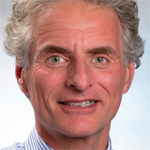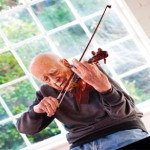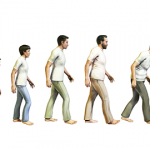Similarly, Dr. Makary, an expert in surgical safety, has noted that older surgeons maintain high levels of competency. For example, they have lower, paid malpractice claims, and older surgeons commit fewer never events, such catastrophic errors as operating on the wrong patient or the wrong organ or leaving a foreign object behind.12 Perhaps we ought to heed the cautionary views espoused by these experts before jumping on the aging-and-declining-cognition bandwagon.
Aging highlights the transient nature of our professional existence. Of course, most of us can’t go on practicing forever. But don’t we all wish to stay relevant, to have a purpose, to serve a cause? Although I can empathize with my colleagues who chose to retire rather than stare at an overly busy computer screen, we cannot be Luddites and ignore the rapid transformations that have occurred in our midst over past several years in medicine, science and technology. We need to embrace change. And to do so, we need to devise strategies that will help keep us mentally and physically in the game for years to come.
Physicians are far from the only professionals seeking to stay relevant. Consider Roger Federer’s amazing performance this year at age 36, an age formerly considered to be well past retirement for tennis players. What about all those aging rockers who performed on tour this past summer? Think Grateful Dead, Billy Joel, Bob Dylan, The Who (“Hope I die before I get old”), Paul McCartney and many others. They are not yet ready to sing their last song. If you aren’t either, consider a few aphorisms following Eph’s cue for a long and healthy life:
- Follow your own advice to patients: stay active, work out, eat well;
- Expand your horizons: read all forms of literature, medical, fiction, historical, whatever;
- Make time to attend rounds regularly;
- Live dangerously: Attend a seminar on a topic that is completely foreign to you;
- Keep an open mind to novel ideas;
- Mentor a medical student; and
- To retrieve a forgotten factoid, there’s Google.
I think Eph would have approved.
 Simon M. Helfgott, MD, is associate professor of medicine in the Division of Rheumatology, Immunology and Allergy at Harvard Medical School in Boston.
Simon M. Helfgott, MD, is associate professor of medicine in the Division of Rheumatology, Immunology and Allergy at Harvard Medical School in Boston.
References
- Altman LK. Dr. Denton Cooley, whose pioneering heart surgery set off a 40-year medical feud, dies at 96. The New York Times. 2016 Nov 18.
- Chu L. Ephraim Engleman, one of world’s oldest practicing physicians, dies at 104. UCSF News. 2015 Sep 4.
- Whiting S. Dr. Ephraim Engleman going strong at age 100. The San Francisco Chronicle. 2011 Mar 21.
- Federal court: Mandatory retirement age for pilots is not age discrimination. National Business Aviation Association. 2014 May 2.
- Moss AJ, Greenberg H, Dwyer EM, et al. Senior academic physicians and retirement considerations. Prog Cardiovasc Dis. 2013May–Jun;55:611–615.
- 2015 workforce study of rheumatology specialists in the United States. American College of Rheumatology.
- Haddad T. Cognitive assessment in the practice of medicine—dealing with the aging physician. Physician Exec. 2013 Jul-Aug;39(4):14–20.
- Green SA. Clinical competence and the aging surgeon. Patient safety, ethical considerations must be respected. AAOS Now. 2008 Sep;8(9):1–6.
- Davis DA, Mazmanian PE, Fordis M, et al. Accuracy of physician self-assessment compared with observed measures of competence. JAMA. 2006 Sep 6;296(9):1094–1102.
- Nagar S, Aschebrook-Kilfoy B, Kaplan EL, et al. Age of diagnosing physician impacts the incidence of thyroid cancer in a population. CCC. 2014 Dec;25(12):1627–1634.
- Tsugawa Y, Newhouse JP, Zazlavsky AM, et al. Physician age and outcomes in elderly patients in hospital in the US: Observational study. BMJ. 2017 May 16;357:j1797.
- Lagnado L. When are doctors too old to practice? The Wall Street Journal. 2017 Jun 24..


